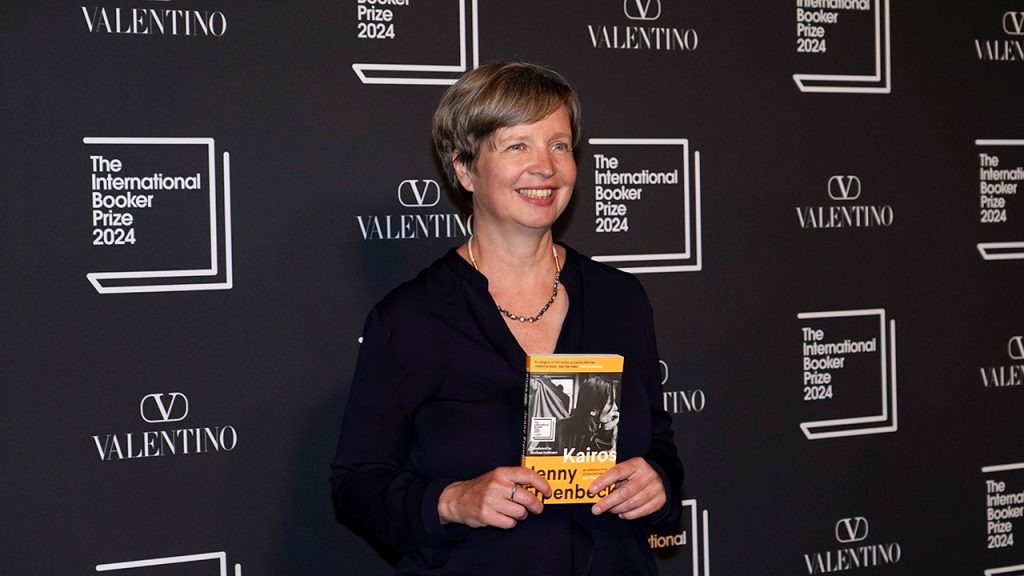German author Jenny Erpenbeck and translator Michael Hofmann were awarded the International Booker Prize for fiction for “Kairos,” a novel that explores a complicated love affair set during the final years of East Germany’s existence. The novel was chosen from 149 submissions and highlights the relationship between a student and an older writer against the backdrop of the German Democratic Republic’s collapse. The story captures personal and national transformations leading up to the fall of the Berlin Wall. Eleanor Wachtel, who chaired the judging panel, praised the book for its rich depiction of a tormented love affair and the unraveling of optimism and trust similar to that of the GDR.
Erpenbeck, who was born and raised in East Berlin, infused her personal experiences into the narrative, drawing upon her firsthand knowledge of life in East Germany. The book portrays the disintegration of a relationship mirroring the collapse of the communist regime, exploring the intertwined complexities of personal and national history. Wachtel commended Hofmann’s translation, which successfully captured the eloquence and eccentricities of Erpenbeck’s prose. The International Booker Prize, which includes a 50,000-pound prize divided between the author and translator, aims to recognize translated fiction that offers unique perspectives on global narratives.
The International Booker Prize promotes fiction from around the world and celebrates the art of literary translation. Last year’s winner, “Time Shelter” by Bulgarian writer Georgi Gospodinov, focused on the legacy of communism in Europe. The prize was established to raise the visibility of translated fiction, which often receives less attention in the English-speaking literary world. Hofmann’s win marks a significant milestone as the first male translator to receive the award since its inception in 2016. The prize highlights the crucial role of translators in bringing diverse stories and voices to audiences worldwide.
The novel “Kairos” navigates themes of love, loss, and transformation against the backdrop of a changing political landscape, offering a poignant reflection on personal and national upheaval. Erpenbeck’s exploration of the complexities of human relationships during a time of upheaval resonated with the judging panel, earning her the prestigious award. Through her vivid storytelling and nuanced character development, Erpenbeck brings to life the emotional struggles of individuals grappling with the shifting realities of a crumbling regime. The novel’s portrayal of intertwined destinies and the impact of political change on personal lives captured the essence of a pivotal historical moment in Germany.
Hofmann’s skillful translation of Erpenbeck’s work contributed to the novel’s success, preserving the original text’s lyricism and depth. The International Booker Prize recognizes the collaborative efforts of authors and translators in crafting compelling narratives that transcend linguistic and cultural boundaries. By awarding Erpenbeck and Hofmann for their outstanding contribution to world literature, the prize committee celebrates the power of storytelling to bridge disparate experiences and illuminate shared human emotions. “Kairos” stands as a testament to the enduring legacy of the German Democratic Republic and the transformative impact of love amidst political turmoil, showcasing the enduring power of literature to inspire empathy and understanding across diverse contexts.


